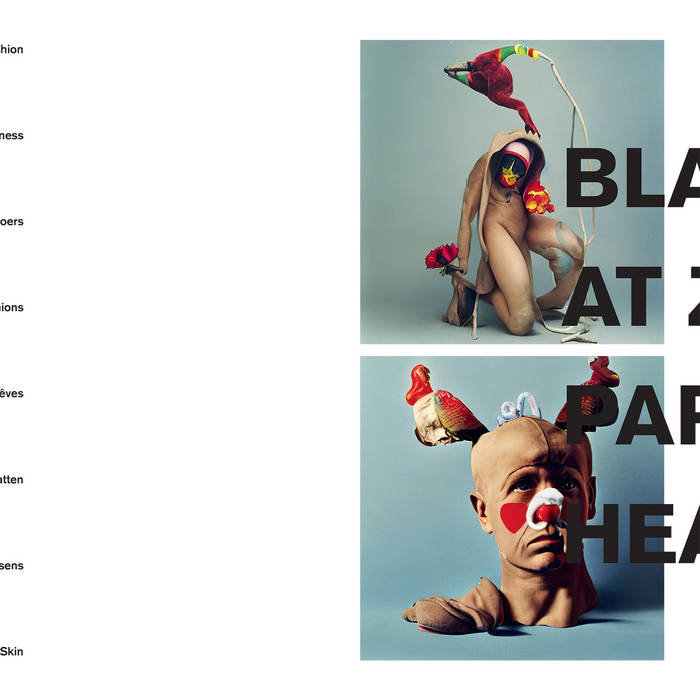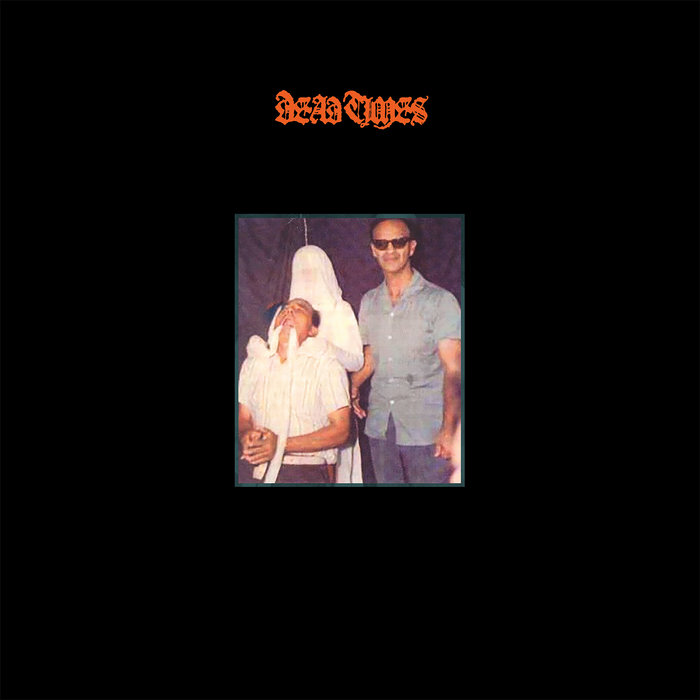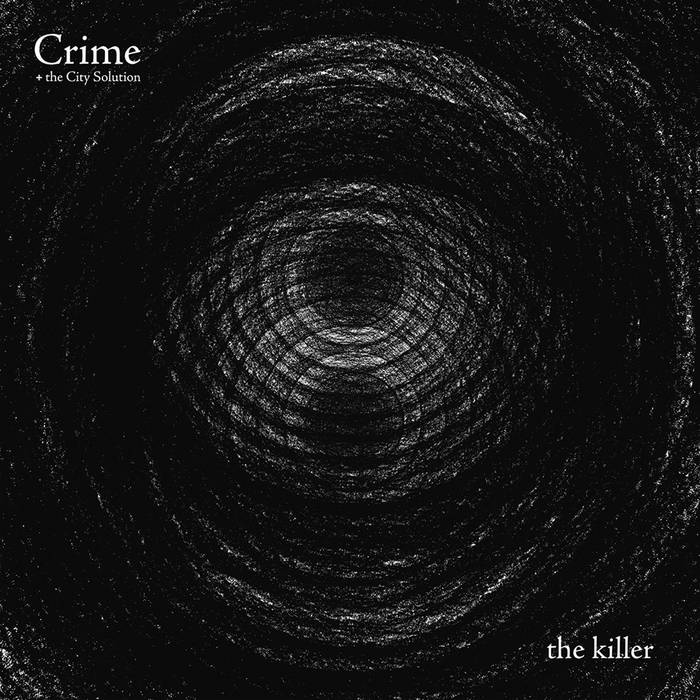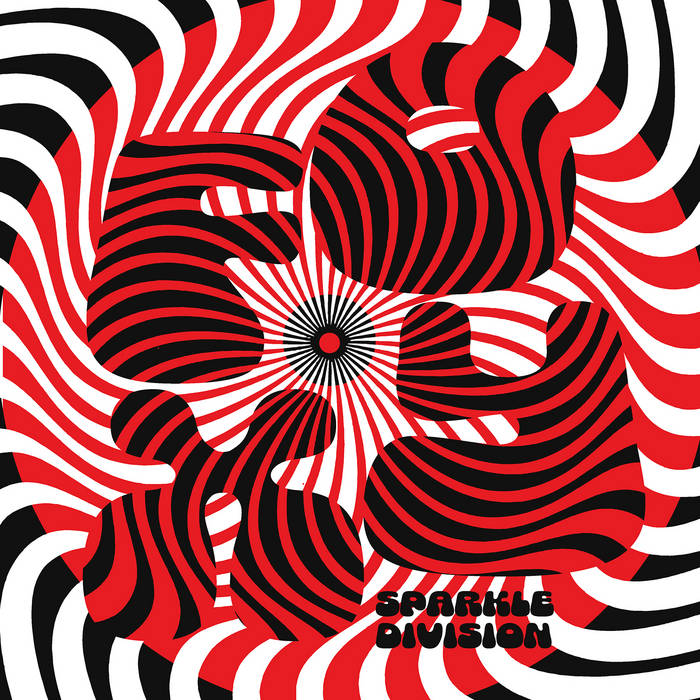
Black To Comm "At Zeenath Parallel Heavens"
At Zeenath Parallel Heavens finds Black to Comm contemplating the hybridity within each and every one of us, be it sexual, racial, cultural, language, and beyond. Richter mirrors personal dualities by employing a combination of sounds he created and manipulated samples, blurring their boundaries. This time these sources were pushed to the extremes as he explored contrasts of these combined sonic pallets. “It was created by a combination of sampling and doing my own recordings and then a lot of studio work, editing and collage, which is the main process. I always try to blur the line between sampling and my own recordings, also between ‘real’ instruments, MIDI, electronics, editing, between authenticity and theatrics/artificiality.” As Richter worked on the album, he became aware of how AI text programs processing resembles his own methods. “I had the realization recently that the way I compose is not too dissimilar to what AI software is doing nowadays – especially when the AI is hallucinating (this is the term used when the AI is overloaded/overcharged/inundated and comes up with made-up results).” Human behavior reflected in a computer facsimile of human intelligence appealed to the ethos of Black to Comm, whose titles and concepts are often oblique and tongue-in-cheek. Song titles drawn from epic poetry and ancient mythology explore a duality between the serious and ridiculous, mimicking the multi-layered meanings of the music itself; “I love the pathos, the flowery baroque language, the ambiguity (especially with regards to erotic innuendo),” Richter elaborates.
At Zeenath Parallel Heavens pushes Richter’s audio occultism into even more divine, transcendent territory. Across the album’s dazzling expanse, Richter assembles an arresting sonic narrative that blossoms from primeval creation myths to ominous, shadowy expanses and radiant heavenly vistas, exploring the existence of alternative realities. It is as astounding in the scope of its vision as it is immediately enthralling, as inviting as it is subtly unnerving.

Dead Tooth "Dead Times"
Dead Times is Lee Buford (The Body, Sightless Pit) and Steven Vallot (Muslin). The duo originally began working together in 2008 while living together in Providence DIY space The Sickle, and releasing the early records from The Body and Assembly of Light Choir on their short-lived Aum War label. They quickly achieved cult status with just two limited releases. Those releases have become highly coveted rarities for The Body fans and those familiar with the world of Providence, Rhode Island’s legendary DIY scene, which gave rise to artists like Lightning Bolt and Black Dice. Emerging over a decade later, Dead Times connects the threads of the untethered extremes of their origins to the mastery of production, composition and structure each member has cultivated in their time apart. On their debut self-titled full-length, Dead Times present a kind of mesmeric dread, a world of desperate beauty wrapped in sonic venom.
Dead Times takes after Buford’s The Body in its thirst for ever harsher atmospheres, often pushing the mixtures of noise and volume to extremes previously not thought possible. Still, between each avalanche of sound peeks magnificent spectacles of melodicism and harmonic motion. Looping synthesizers bob like buoys in oceans of distortion. Samples are pushed to their absolute limit while remaining discernible against the thrum. Sparse electronic beats blast beneath pensive organs while Vallot’s echoing wail and consistent The Body collaborator, Providence’s Ben Eberle’s (Sandworm) signature bark conjure pillars of magma. The blown-out choral melody of opener “Rosewater” showcases the duo’s propensity for alchemizing serenity and severity. “Psyche Surprises Love” turns cries of pain into rising drones that build into a veritable bass drop. Across the album, the duo oscillate between overwhelming volleys that sheath hidden splendors and suffusing moments of quiet and clarity with melancholy and grit. “Comfort and Control” juxtaposes tender acoustic guitars and warm synths with an underlying crackle like a portent of ill-tidings whispered rather than shouted. The thunder-pulse of “Be Glad” gives way to an anthemic keyboard phrase that evokes defiance in lieu of hopelessness.
Buford and Vallot each bring wells of experience and new skill to Dead Times since their days living together in dilapidated warehouses. The duo’s shared history remains an essential element to their chemistry, but each has sharpened their craft to harness that raw creativity into music that is fearless, poignant and undeniably unique. A band’s band, but not for long. Dead Times, the duo’s first album, is staggering in its ambitions and exquisite in its execution.

Crime & the City Solution "the killer"
the killer, the sixth studio album from Crime & the City Solution, and their first in over a decade will be released via mute, on October 20, 2023.
The album began life as a PhD application that came to life when the band s core members, Simon Bonney and Bronwyn Adams, found themselves stuck in their native Australia under one of the world s strictest lockdowns, their nomadic lifestyle put on pause by the pandemic. Naturally , says Simon, I sat and I pieced together a PhD application about decision making in Afghanistan in the late 80s. But as it turned out, it was actually more of a record than it was a PhD.
The PhD and, by turn, the album found inspiration from Bonney s work delivering aid programmes across the Indo-Pacific region. Through that work, he visited places with high levels of violence and the album, in part, acted as a way in which to process the effect that turmoil has had on his psyche, of the dead bodies in my dreams, that he sings about in the title track. He explains, There s no mention of American decision making in Afghanistan on the album, but in terms of subject matter there s a lot that s pretty similar; a lot of the record is about loss of faith.
